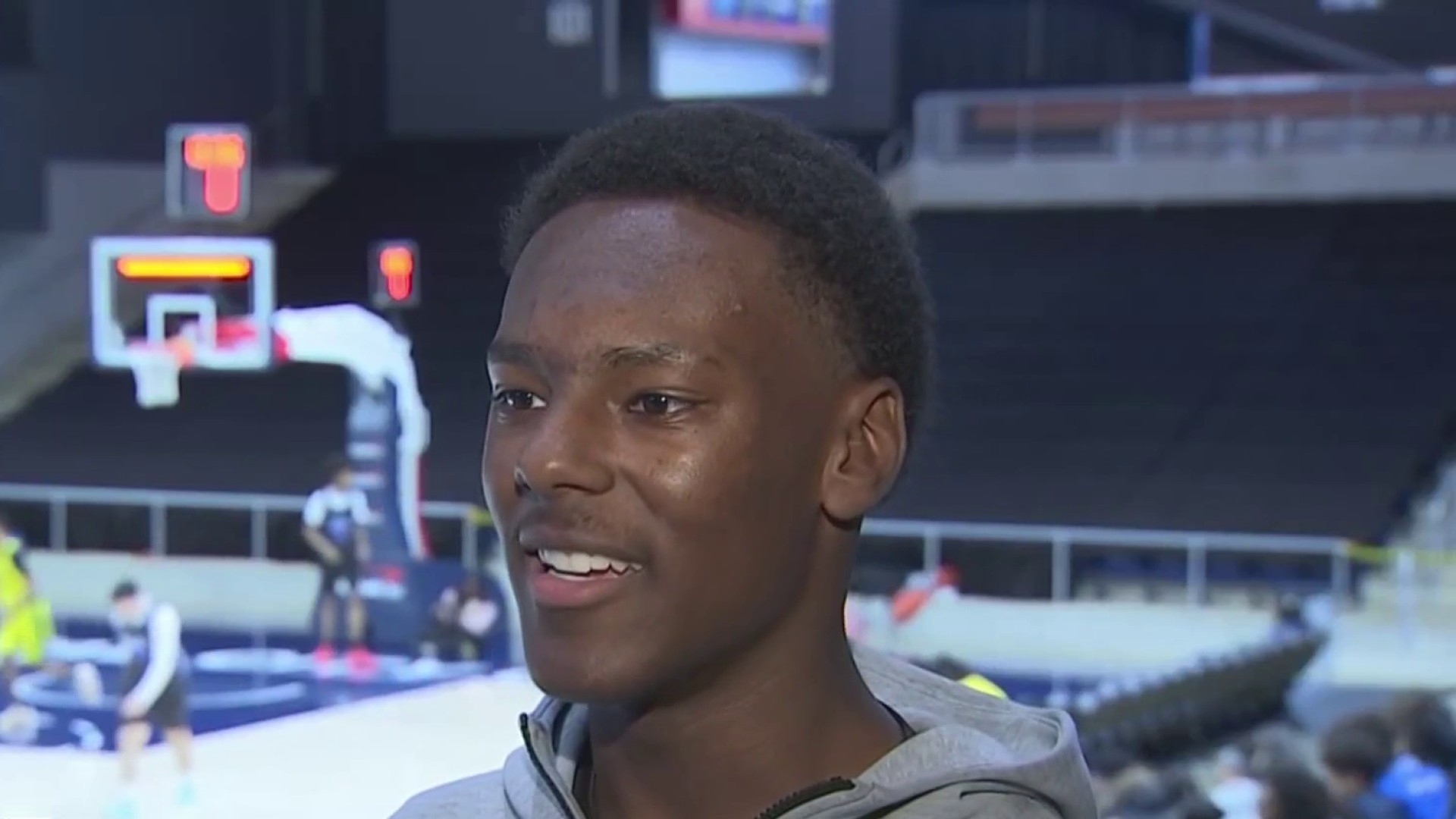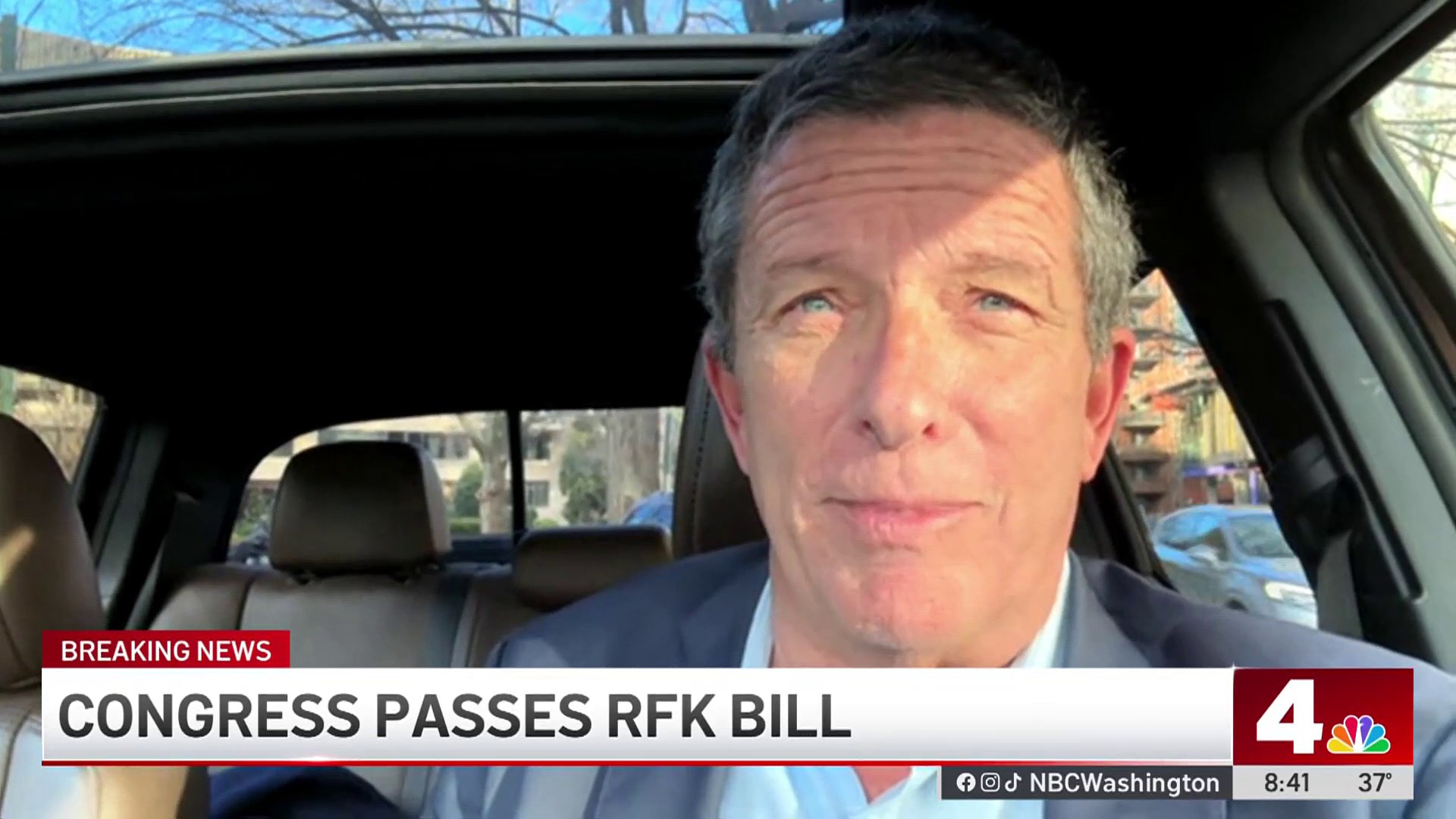Former FBI Director James Comey testified Thursday that President Donald Trump pressured him to to drop an investigation into one of his senior advisers, fired him after he would not do so and lied about the affair. Trump denies pressuring Comey, and is accusing Comey of leaking "privileged information."
In dramatic testimony that gripped Washington, D.C., and much of the country, Comey said he began documenting what occurred in their private interactions from the outset because he believed Trump might lie about what took place. Comey revealed to the Senate intelligence committee that after his firing he tried to spur the appointment of a special counsel by giving one of his memos about Trump to a friend to leak to the press.
Neither Trump nor any member of the administration sought to directly stop the FBI's investigation into Russian election meddling, Comey said, but his dismissal left him "confused and increasingly concerned" by the "shifting explanations" that were given by the White House.
"It's my judgment that I was fired because of the Russian investigation, I was fired in some way to change— the endeavor was in some way to change the way the Russian investigation was being conducted," Comey said. "And that is a very big deal, and not just because it involves me. The nature of the FBI, and the nature of its work, requires that it not be the subject of political consideration."
Soon after the hearing, Trump's outside counsel released a statement denying Trump asked for loyalty, as Comey alleges. The statement continued, however, that "the Office of the President is entitled to expect loyalty from those who are serving in an administration." The statement also accused Comey of leaking "privileged information," including the memos.
The hearing came a day after Comey said in written testimony to the Senate that private conversations with Trump made him deeply uneasy and concerned about the blurring of boundaries between the White House and a law enforcement agency that prides itself on independence.
Comey wrote Wednesday that Trump said "I need loyalty, I expect loyalty," and directly pushed him to "lift the cloud" of investigation by declaring publicly the president was not the target of the probe into his campaign's Russia ties.
Local
Washington, D.C., Maryland and Virginia local news, events and information
He also wrote that he began writing memos after his first private meeting with Trump, a briefing at Trump Tower on Jan. 6. Comey explained Thursday that he did so because he "was honestly concerned that he might lie about the nature of the meeting, and I thought it was important to document it."
But Trump's personal attorney, Marc Kasowitz, said in the statement that Trump never "directed or suggested that Mr. Comey stop investigating anyone, including suggesting that that Mr. Comey 'let Flynn go.'" And Kasowitz said Trump "never told Mr. Comey, 'I need loyalty, I expect loyalty' in form or substance."
The statement accused Comey of being one of many people trying to trip up the administration by leaking information: "It is overwhelmingly clear that there have been and continue to be those in government who are actively attempting to undermine this administration with selective and illegal leaks of classified information and privileged communications. Mr. Comey has now admitted that he is one of these leakers."
The statement concluded, "In sum, it is now established that there the President was not being investigated for colluding with the or attempting to obstruct that investigation. As the Committee pointed out today, these important facts for the country to know are virtually the only facts that have not leaked during the long course of these events."
Kasowitz read the statement at a news conference but took no questions.
Comey would not say in public session whether he believes the president colluded with Russia during the election. The committee went into closed session following the hearing, in which classified information can be discussed.
'LIES, PLAIN AND SIMPLE'
At the hearing, Comey did not repeat his written testimony, but he touched on the meetings with Trump while answering questions, and his own firing. He said the administration's explanations for letting him go, that the FBI was in disarray, "were lies, plain and simple."
Trump spokeswoman Sarah Huckabee Sanders disputed that remark during a briefing at the White House, saying, "I can definitely say the president's not a liar."
Trump did not respond to Comey's testimony, though officials said he was expected to watch it at the White House with his legal team. Trump didn't make direct reference to the hearing at an event in Washington that began as Comey's hearing finished up, but he did say he "would not back down from doing what is right" in the face of "failed, bitter voices in Washington" who lie, obstruct and spread hatred.
His son, Donald Trump Jr., criticized Comey and defended his father in a series in Twitter posts. He said that the "Flynn stuff" was "very far from any kind of coercion or influence and certainly not obstruction."
Comey had testified that he took Trump's phrase, "I hope you can let this go," a reference to the FBI's investigation into former national security adviser Michael Flynn, as an order.
Trump was expected to dispute Comey's claims that he demanded loyalty and asked Comey to drop the Flynn investigation, according to a person close to the president's legal team who demanded anonymity because they were not authorized to discuss legal strategy.
Comey said he was sure that Trump's alleged attempt at influencing the Flynn investigation is something the special counsel who took charge of the FBI's probe, Robert Mueller, would look at.
"I don't think it's for me to say whether the conversation I had with the president was an effort to obstruct," Comey said. "I took it as a very disturbing thing, very concerning, but that's a conclusion I'm sure the special counsel will work for, to try and understand what the intention was there, and whether that's an offense."
Additionally, Comey said he knew of a "variety of reasons" why Attorney General Jeff Sessions' involvement in the Russia investigation would be problematic before Sessions recused himself in March. But Comey added he could not discuss the reasons openly.
The Justice Department said Sessions recused himself from the Russia investigation only because he was involved in Trump's campaign.
In a statement late Thursday, spokesman Ian Prior said "it was for that reason, and that reason alone" that Sessions decided to step aside from the probe. The statement doesn't mention Sessions' undisclosed contacts with Russia's ambassador.
A PACKED ROOM
Hundreds of people lined up outside the Capitol Hill hearing room to try to get a seat, with the queue snaking from the Hart Senate Office Building into the adjoining Dirksen Senate Office Building.
"It feels like a historic day," said Matt Veno, of Massachusetts. He was at the very end of the line about 20 minutes before the start of the hearing.
Comey entered the overflowing hearing room just after 10 a.m. and took his seat at the witness table, alone, as the session got underway. He listened, hands clasped on his lap, as committee Chairman Richard Burr of North Carolina delivered his opening statement.
"Today," Burr told Comey, "is your opportunity to set the record straight."
Burr is leading the committee's investigation into Russia's meddling in the 2016 election and ties with Trump's own campaign team.
Comey's written and verbal testimony confirmed that he told Trump he was not personally under investigation, as Trump had asserted in his termination letter to Comey. Trump felt "completely and totally vindicated" by that part of the written testimony, according to a statement from Kasowitz Wednesday.
House Speaker Paul Ryan said as the hearing was underway that the FBI director needs to be independent of the executive, but explained that Trump was unfamiliar with protocol, and "just new to this." Asked about Comey saying Trump lied, Ryan called it a "he said, he said" situation.
When the hearing ended, a crowd of reporters for news outlets from around the world waited for the former FBI director to exit the hearing room. He strode through the crowd silently, ignoring shouted questions.
ARE THERE TAPES?
Much of what Comey had to say was new, but there was one point on which he remains in the dark: whether or not the president recorded their conversation.
Days after firing Comey, and after The New York Times reported on one of Comey's memos, Trump tweeted a warning to the former FBI director that he had better hope there are no "tapes" of their conversations. That statement raised the question of whether Trump recorded discussions with Comey, but the White House has not confirmed whether Trump did so.
"Lordy, I hope there are tapes," Comey said Thursday, later urging the president to release any tapes he has.
"I'm good with it," Comey said.
In fact, Comey said that Trump's "tapes" comment prompted him to ask a friend, a professor at Columbia Law School, to release the memo, thinking it could corroborate his account.
"My judgment was, I needed to get that out into the public square, and so I asked a friend of mine to share the content of the memo with a reporter," Comey said. "I though that might prompt the appointment of special counsel."
There were a few moments of levity during the hearing.
When Comey said he had to cancel a date with his wife to have dinner with Trump, the dinner at which Comey says Trump demanded his loyalty, the crowd cooed, "Awwww!"
"In retrospect, I love spending time with my wife — I wish I hadn't broken that date," Comey joked.
And Comey got a slight laugh when he said, "The statue of justice has a blindfold on. You're not supposed to be peeking out to see if your patron is pleased or not."
Comey used part of his opening statement to assure the public that "the FBI is honest, the FBI is strong and the FBI is and always will be independent." He also apologized to the bureau for not being able to say goodbye to them when he was fired.
NBC Washington's Andrea Swalec and The Associated Press contributed to this report.



